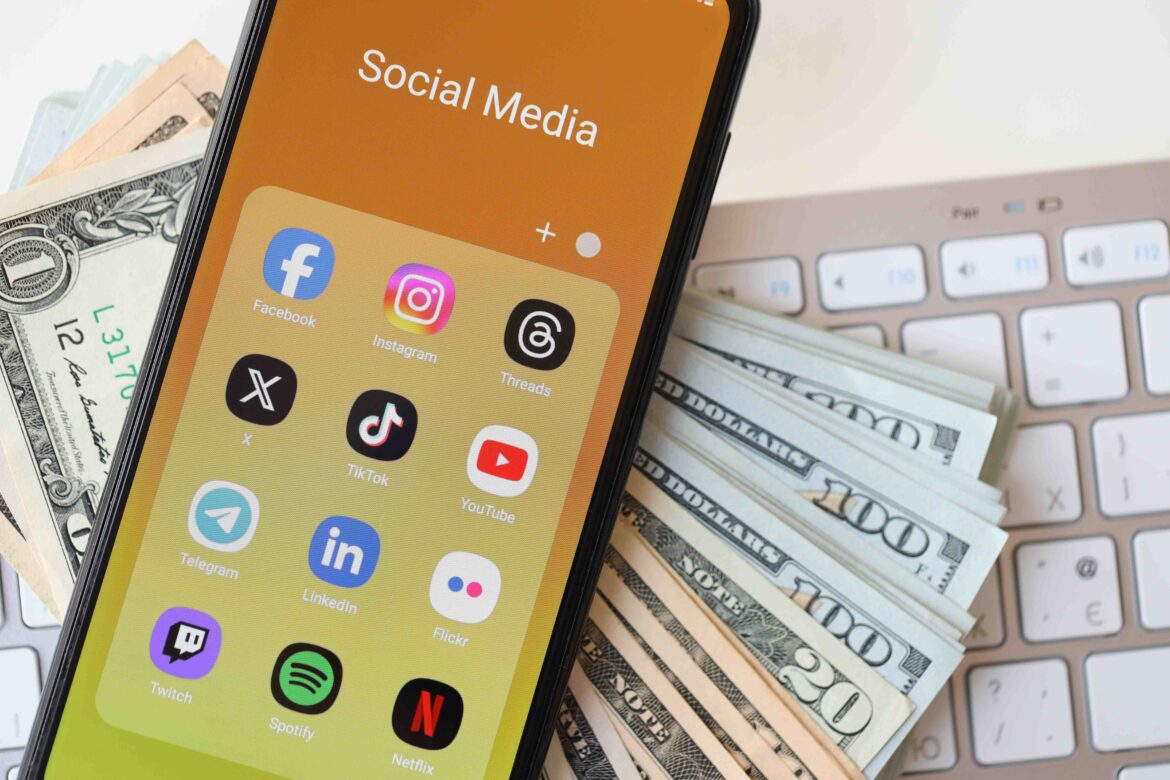Social media has revolutionized the way we connect, communicate, and consume information. It has also become more prominent in recent years as a strong influence on our behavior, including how we make financial decisions. Social media has become a powerful tool for influencing consumer decisions and financial behaviors due to the pervasiveness of platforms like Facebook, Instagram, Twitter, and YouTube. This blog discusses the advantages and disadvantages of social media’s influence on financial decisions as it relates to our daily lives.
1. Social Media’s Ascendance and Financial Impact
Social media platforms have proliferated, resulting in an interconnected world where ideas can spread quickly and affect a large number of people. Social media has consequently emerged as a major player in the world of finance. How it influences our financial choices is as follows:

A. Financial Education: From personal finance blogs to information shared by financial professionals, financial education and information are widely accessible on social media. Users have quick access to information that can enable them to make wise financial decisions.
B. Market Trends and FOMO: Social media platforms frequently highlight market trends and investment success stories. This may result in the “Fear of Missing Out” (FOMO) phenomenon, which tempts people to make impulsive investments without doing their due diligence.
C. Influence of Social Media Celebrities: On social media platforms, influencers and celebrities have a big influence on the purchasing habits of their followers. Their recommendations may influence consumer decisions to make purchases or investments.
2. Benefits of Social Media for Making Financial Decisions
Even though social media can have negative effects, there are many ways that it can help us make better financial decisions.
A. Financial Education: A wealth of personal finance professionals and educators can be found on social media, and by sharing their knowledge and advice, they help users become more financially literate.
B. Access to Investment Knowledge: Social media platforms connect people with investment experts and offer information on investment strategies and the financial markets.
C. Community Support: Users can ask for advice, share experiences, and offer support to one another in achieving financial goals through online financial communities.
D. Financial Product Awareness: Social media enables financial institutions to reach a wider audience and inform users of various financial products and services that may be of interest to them.
3. Negative Impact of Social Media on Financial Decisions
On the other hand, social media can have a negative impact on how we behave financially:
A. Target audience: Continuous exposure to targeted advertisements and product endorsements may promote impulsive spending, which can cause financial instability.
B. Fear of Inadequacy: Because social media frequently presents an idealized view of others’ lives, users can feel insufficient and turn to conspicuous consumption to conform to what they believe to be social norms.
C. Quick-money schemes: Social media is rife with quick-money schemes and dubious investment advice, which can cause people to fall for fraud and scams.
D. Debt Accumulation: Some people may incur debt in order to maintain the appearance of living a lavish lifestyle on social media.
4. Techniques for Understanding Social Media’s Impact on Finances
Consider the following strategies to make the most of social media’s advantages while minimizing its detrimental effects on financial decisions:
A. Filter Your Content: Pay attention to the social media accounts you follow. Unfollow any accounts that encourage extravagant spending or irrational financial goals.
B. Check Information: Consult reputable sources or experts to double-check any financial advice or investment opportunities shared on social media.
C. Exercise Self-Control: Refrain from making rash financial decisions motivated by FOMO. Before making an investment decision, spend some time researching and analyzing your options.

D. Set Financial Goals: Make sure your financial objectives are crystal clear and take precedence over any short-term temptations that may appear on social media.
E. Limit Social Media Use: To lessen your exposure to targeted advertisements and financial influencers, spend less time on social media platforms.
There is no denying that social media has an impact on our finances. Although it gives us access to investment knowledge and valuable financial education, it also makes us vulnerable to traps like irrational spending, FOMO, and deceptive schemes. We can use these platforms as tools for financial empowerment and wise decision-making by being aware of the influence of social media and implementing strategies to navigate its impact. We can use social media as a tool for financial empowerment and wise decision-making by being aware of its influence and implementing strategies to manage it. Remember that maintaining an informed awareness while avoiding its negative triggers is the key to a successful financial relationship with social media.
